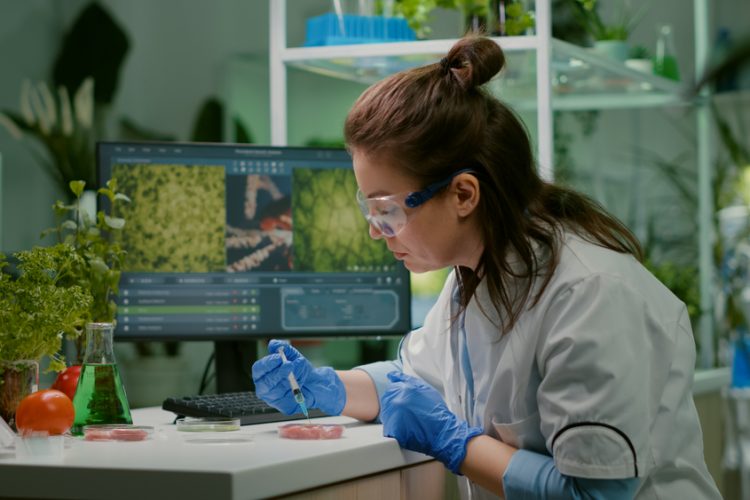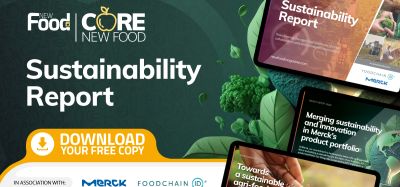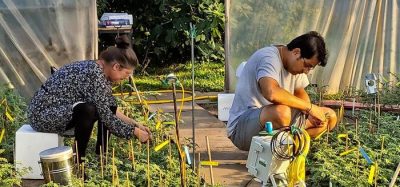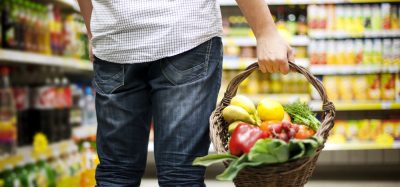Investing in alternative proteins can secure Germany’s food leadership, new report finds
- Like
- Digg
- Del
- Tumblr
- VKontakte
- Buffer
- Love This
- Odnoklassniki
- Meneame
- Blogger
- Amazon
- Yahoo Mail
- Gmail
- AOL
- Newsvine
- HackerNews
- Evernote
- MySpace
- Mail.ru
- Viadeo
- Line
- Comments
- Yummly
- SMS
- Viber
- Telegram
- Subscribe
- Skype
- Facebook Messenger
- Kakao
- LiveJournal
- Yammer
- Edgar
- Fintel
- Mix
- Instapaper
- Copy Link
Posted: 10 February 2025 | Ben Cornwell | No comments yet
A new report by Systemiq highlights how how strategic investments in the alternative protein market could drive Germany’s economic growth, job creation and sustainability.


Germany’s food industry could be on the brink of a major transformation, with alternative proteins driving economic growth, boosting exports and securing future-proof jobs, according to a new analysis by systems change company Systemiq. The study, A Taste of Tomorrow: How Protein Diversification Can Strengthen Germany’s Economy, supported by nonprofit think tank the Good Food Institute (GFI) Europe, highlights the nation’s potential to capitalise on plant-based, fermentation-made and cultivated foods while addressing key policy and investment barriers.
The report suggests that Germany’s potential lies not only in producing sustainable foods for a strong domestic market, but even more so in becoming the industrial backbone of this sector by developing and manufacturing the necessary machinery and infrastructure for worldwide exports.
Economic growth hinges on policy and investment
The study explores various future scenarios, outlining the extent to which regulatory support and investment will determine market outcomes. In a conservative scenario, with minimal political backing, Germany’s alternative protein market could reach €5 billion by 2030 and €8 billion by 2045.
Protein diversification presents a compelling solution, offering sustainable food options, boosting Germany’s economic competitiveness through innovation-driven export and creating future-proof jobs.
Even under these conditions, exports could still generate significant revenue, and around 45,000 jobs could be created by 2030, rising to 115,000 by 2045. However, due to unsolved challenges, Germany would risk losing its current leadership in the sector.
In contrast, a high-ambition scenario, with strong regulatory support and investment, could see the domestic market expand to €10 billion by 2030 and €23 billion by 2045, equalling around 10 percent of today’s food and drink industry revenue. Under these conditions, up to 95,000 jobs could be created by 2030, with the potential to reach 250,000 by 2045. The report estimates that Germany’s total export opportunity could be worth up to €15 billion by 2030 and as much as €35 billion by 2045 in the high-ambition scenario.
Sophie Hermann, Partner at Systemiq, emphasised the transformative potential of protein diversification, stating: “Protein diversification presents a compelling solution, offering sustainable food options, boosting Germany’s economic competitiveness through innovation-driven export and creating future-proof jobs.”
However, she noted that the market is still in its early stages, with significant uncertainties remaining — particularly regarding regulatory developments, public and private investments, and technological advancements.
Environmental and societal benefits
Beyond its economic advantages, the report underscores the environmental and public health benefits of increasing alternative protein consumption. A high-ambition scenario could lead to a reduction of up to 4.8 million tonnes of CO₂e emissions by 2045, the equivalent of taking one million cars off the road. Land use requirements could shrink by 1.2 million hectares, while freshwater consumption could drop by up to 76 million cubic metres, matching the annual water usage of 420,000 German households.
From a public health perspective, the study notes that alternative proteins could help alleviate dietary health concerns by reducing cholesterol and saturated fat intake while boosting dietary fibre consumption.
Strategic policy interventions needed
Despite Germany’s strong starting position, the report warns that significant challenges remain, particularly in regulatory processes and investment levels. To address these, the study outlines five key policy interventions aligned with national priorities:
- Ensuring plant-based meat and other alternative proteins are incorporated into public food procurement, including schools, daycare centres and workplace cafeterias.
- Increasing public R&D funding from the current €13 million annually to €140 million per year, with €30 million earmarked for an innovation hub.
- Deploying €120 million per year to de-risk private investments in alternative protein infrastructure through guarantees and low-interest loans.
- Supporting companies in navigating regulatory frameworks to facilitate the approval of novel foods.
- Strengthening domestic protein supply chains by providing incentives for farmers to become key players in a diversified protein system.
Ivo Rzegotta, Senior Public Affairs Manager at GFI Europe, urged German policymakers to act swiftly, stating: “German policymakers have a unique opportunity to make the nation a front-runner in protein diversification.”
He added, “The next federal government should incorporate the proposed policy interventions in its agenda, particularly earmarking public investments for research and infrastructure and providing sufficient regulatory support.”
He warned that failure to act decisively could result in Germany falling behind in the global transition towards sustainable proteins, forfeiting not only economic opportunities but also the broader environmental and social benefits the sector promises.
A defining moment for Germany’s food industry
With global demand for alternative proteins rising, Germany stands at a crossroads. Whether it secures a leadership position in this rapidly evolving sector will depend on the decisions made today. With the right mix of investment, regulatory support and innovation, the data gathered by Systemiq suggests that the country has the potential to shape the future of sustainable food production both in Europe and beyond.
Related topics
Alternative Proteins, Cultured Meat, Environment, Food Security, Insect Protein, Proteins & alternative proteins, Recruitment & workforce, Sustainability, Technology & Innovation, Trade & Economy, World Food









